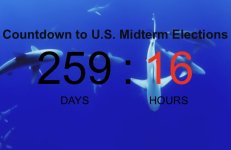It looks like Bondi is trying to protect herself, avoid contradicting Trump, and cover for Gabbard at the same time. It’s very irregular for Gabbard, whose job is supposed to focus on foreign intelligence, to be involved in an investigation over supposed 2020 election fraud in Georgia (which was disproven in court long ago). Trump himself is unusually close to the investigation, discussing the Fulton County raid with Gabbard and FBI officials who were present. What is actually going on, and what is the end goal?Donald Trump pardons Rudy Giuliani and others who backed efforts to overturn 2020 election, official says
None of U.S. president's allies named were charged in federal cases over 2020 election
Author of the article:Associated Press
Associated Press
Alanna Durkin Richer
Published Nov 10, 2025 • Last updated 12 hours ago • 3 minute read
“DNI Gabbard was down in Atlanta last week for the Fulton County search. Originally, this office said that she was not part of the investigation. She put in a letter to Congress that President Trump directed her to do so, and then now President Trump yesterday said that it was at your insistence that she went down there. So what is the case here?” the reporter asked.Ed Martin, the government’s pardon attorney, posted on social media a signed proclamation of the “full, complete, and unconditional” pardon, which also names Sidney Powell, an attorney who promoted baseless conspiracy theories about a stolen election, and John Eastman, another lawyer who pushed a plan to keep Trump in power. The proclamation, posted online late Sunday, explicitly says the pardon does not apply to Trump.
On Thursday, President Trump was asked why Gabbard, the director of national intelligence, was at the raid in which ballots from the 2020 election were seized. He responded by blaming Attorney General Pam Bondi, saying that Gabbard “took a lot of heat ... because she went in at Pam’s insistence ... and she looked at votes.”Presidential pardons apply only to federal crimes, and none of the Trump allies named were charged in federal cases over the 2020 election. But the move underscores Trump’s continued efforts to promote the idea that the 2020 election was stolen from him even though courts around the country and U.S. officials found no evidence of fraud that could have affected the outcome. It follows the sweeping pardons of the hundreds of Trump supporters charged in the Jan. 6, 2021, riot at the U.S. Capitol, including those convicted of attacking law enforcement.
Bondi Reacts as Trump Throws Her Under the Bus Over FBI Georgia Raid — The New Republic
Attorney General Pam Bondi was asked to explain the Trump administration’s shifting story on why Tulsi Gabbard was at the FBI raid of a Georgia elections office.
“She was down there with Deputy Director Andrew Bailey of the FBI,” Bondi said, referring to Gabbard. “I’m not going to talk about any other details of that matter right now because Georgia is a very important issue to us. She was there, we’re inseparable, that’s all I’ll say.”




